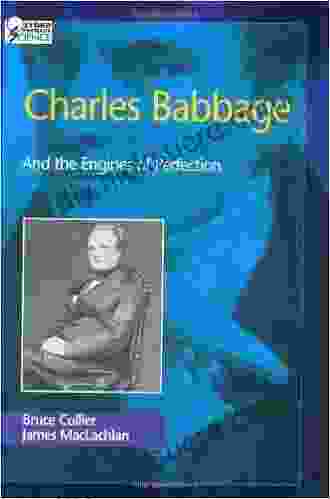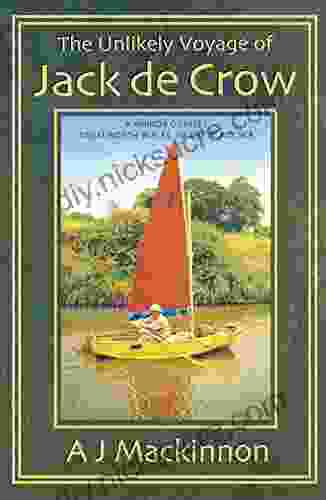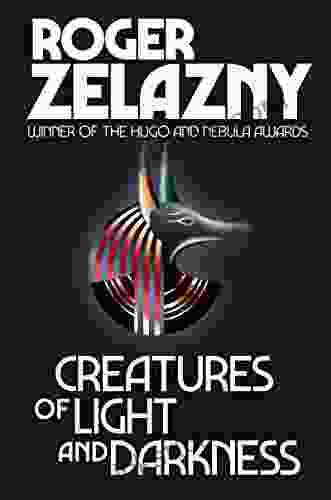And The Engines Of Perfection Oxford Portraits In Science: A Journey Through the Minds of Scientific Genius

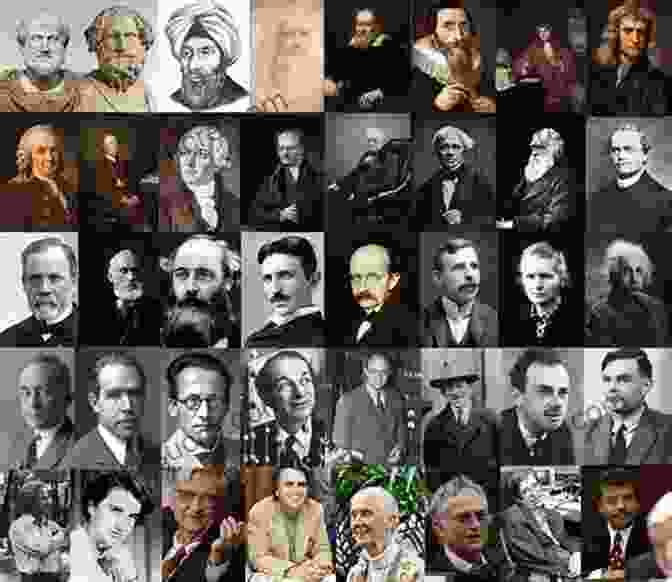
Science is a human endeavor, and like all human endeavors, it is filled with stories of triumph and failure, brilliance and madness. The scientists who have shaped our understanding of the world have been as diverse as the fields they have studied, but they have all shared a common passion for knowledge and a relentless drive to understand the workings of the universe.
4.5 out of 5
| Language | : | English |
| File size | : | 2858 KB |
| Text-to-Speech | : | Enabled |
| Print length | : | 128 pages |
| Lending | : | Enabled |
In his book And the Engines of Perfection: Oxford Portraits in Science, historian John Carey tells the stories of some of the most influential scientists in history, from Aristotle to Einstein. Carey's portraits are not simply hagiographies; he does not shy away from the scientists' flaws and eccentricities. But he also shows how these flaws and eccentricities often fueled the scientists' genius.
Carey's book is a fascinating and inspiring read for anyone interested in the history of science or the lives of great thinkers. It is a reminder that science is not just a collection of facts and theories, but a human drama filled with all the passion, ambition, and folly of human nature.
Aristotle: The First Scientist
Aristotle was born in Stagira, Greece, in 384 BC. His father was a physician to the king of Macedon, and Aristotle received a privileged education. He studied at Plato's Academy in Athens for 20 years, and after Plato's death, he founded his own school, the Lyceum.
Aristotle was a prolific writer, and his works covered a wide range of subjects, including logic, physics, metaphysics, ethics, and politics. He is considered one of the greatest philosophers of all time, and his ideas have had a profound influence on Western thought.
Aristotle was also a scientist in the broadest sense of the word. He was interested in the natural world and conducted experiments to test his theories. He made significant contributions to the study of biology, physics, and astronomy.
Aristotle's scientific method was based on observation and deduction. He believed that the best way to understand the world was to observe it carefully and then draw s based on what he saw. This method is still used by scientists today.
Aristotle's work was not without its flaws. He made some mistakes, and some of his theories have been disproven by subsequent research. But his overall contribution to science was immense. He was the first person to develop a systematic method for studying the natural world, and his ideas laid the foundation for much of modern science.
Galileo Galilei: The Father of Modern Science
Galileo Galilei was born in Pisa, Italy, in 1564. He showed an early interest in mathematics and science, and he studied at the University of Pisa. After graduating, he taught mathematics at the University of Padua.
Galileo's most important contributions to science were in the field of astronomy. He was the first person to use a telescope to study the heavens, and he made a number of important discoveries, including the fact that the Earth revolves around the sun.
Galileo's discoveries were not universally accepted. The Catholic Church, which was the dominant religious authority in Europe at the time, condemned Galileo's work as heresy. Galileo was forced to recant his beliefs, and he spent the last years of his life under house arrest.
Despite the opposition he faced, Galileo's work revolutionized our understanding of the universe. He is considered the father of modern science, and his methods and discoveries laid the foundation for much of modern physics and astronomy.
Isaac Newton: The Genius of the Enlightenment
Isaac Newton was born in Woolsthorpe, England, in 1643. He was a sickly child, and he was not expected to live. But he survived, and he went on to become one of the greatest scientists of all time.
Newton studied at Trinity College, Cambridge, and after graduating, he became a professor of mathematics at the University of Cambridge. He made a number of important contributions to mathematics, including the development of calculus.
But Newton's most important work was in the field of physics. He developed the laws of motion and universal gravitation, which laid the foundation for classical mechanics. Newton's work revolutionized our understanding of the physical world, and it is still used by scientists today.
Newton was a brilliant scientist, but he was also a complex and difficult man. He was often irritable and quarrelsome, and he had few close friends. But he was also a deeply religious man, and he believed that his work was part of God's plan for the universe.
Newton died in London in 1727. He is buried in Westminster Abbey, and he is considered one of the greatest scientists of all time.
Albert Einstein: The Father of Relativity
Albert Einstein was born in Ulm, Germany, in 1879. He showed an early interest in mathematics and physics, and he studied at the Swiss Federal Polytechnic School in Zurich. After graduating, he worked as a patent examiner in Bern, Switzerland.
In 1905, Einstein published four groundbreaking papers on the theory of relativity. These papers revolutionized our understanding of space, time, and gravity. Einstein's work also had a profound impact on the development of quantum mechanics.
Einstein's theories were initially met with skepticism, but they were eventually accepted by the scientific community. Einstein became one of the most famous scientists in the world, and he was awarded the Nobel Prize in Physics in 1921.
Einstein was a brilliant scientist, but he was also a humanist. He was deeply concerned about the social and political issues of his time, and he used his fame to speak out against war and injustice.
Einstein died in Princeton, New Jersey, in 1955. He is considered one of the greatest scientists of all time, and his work has had a profound impact on our understanding of the universe.
The scientists profiled in this book are just a few of the many brilliant minds who have shaped our understanding of the world. They were all driven by a passion for knowledge and a desire to understand the workings of the universe. Their work has changed our world in profound ways, and it continues to inspire us today.
Science is a human endeavor, and it is filled with stories of triumph and failure, brilliance and madness. But it is also a story of progress, and it is a testament to the human spirit's ability to understand the world around us.
4.5 out of 5
| Language | : | English |
| File size | : | 2858 KB |
| Text-to-Speech | : | Enabled |
| Print length | : | 128 pages |
| Lending | : | Enabled |
Do you want to contribute by writing guest posts on this blog?
Please contact us and send us a resume of previous articles that you have written.
 Fiction
Fiction Non Fiction
Non Fiction Romance
Romance Mystery
Mystery Thriller
Thriller SciFi
SciFi Fantasy
Fantasy Horror
Horror Biography
Biography Selfhelp
Selfhelp Business
Business History
History Classics
Classics Poetry
Poetry Childrens
Childrens Young Adult
Young Adult Educational
Educational Cooking
Cooking Travel
Travel Lifestyle
Lifestyle Spirituality
Spirituality Health
Health Fitness
Fitness Technology
Technology Science
Science Arts
Arts Crafts
Crafts DIY
DIY Gardening
Gardening Petcare
Petcare Glenn Patron
Glenn Patron William F Mann
William F Mann Abigail Burd Lcsw Pmh C
Abigail Burd Lcsw Pmh C Jim Vernes
Jim Vernes Roxanne Martin
Roxanne Martin Bob Plager
Bob Plager Polly Moore
Polly Moore Cathy A Malchiodi
Cathy A Malchiodi Andrew Henderson
Andrew Henderson Sandra Swenson
Sandra Swenson Sherine Hamdy
Sherine Hamdy Jordan B Peterson
Jordan B Peterson Val Emmich
Val Emmich Chris Diamond
Chris Diamond Homeira Qaderi
Homeira Qaderi Matthieu Ricard
Matthieu Ricard Nancy Mckenzie
Nancy Mckenzie Mandy Rivers
Mandy Rivers Shanterra Mcbride
Shanterra Mcbride Joel David Hamkins
Joel David Hamkins Catherine Rodgers
Catherine Rodgers Cynthia Ulrich Tobias
Cynthia Ulrich Tobias Kelly Starrett
Kelly Starrett William Scott Wilson
William Scott Wilson Lou Tabory
Lou Tabory Paul Mccarthy
Paul Mccarthy John Halligan
John Halligan Din Daniels
Din Daniels Hazel Holmes
Hazel Holmes Peter Zheutlin
Peter Zheutlin Lucy Christopher
Lucy Christopher Zen Faulkes
Zen Faulkes Arlin Smith
Arlin Smith Andreas Quast
Andreas Quast Freya Hoffmeister
Freya Hoffmeister Sonya Chappell
Sonya Chappell Toni Natalie
Toni Natalie David Remnick
David Remnick Tim Flanagan
Tim Flanagan Sean Skahan
Sean Skahan Shelly Mazzanoble
Shelly Mazzanoble Tom Jordan
Tom Jordan Tiara R Brown
Tiara R Brown Dale P Clemens
Dale P Clemens Thomas C Tabor
Thomas C Tabor Nicole Conway
Nicole Conway Peter Godfrey Smith
Peter Godfrey Smith John Almberg
John Almberg Susan Aud Sonders
Susan Aud Sonders Rafe Esquith
Rafe Esquith Megan Vickers
Megan Vickers Zen Lylah
Zen Lylah Tripp Bowden
Tripp Bowden Rekha Ramcharan
Rekha Ramcharan Tammara Webber
Tammara Webber Chelsea Crockett
Chelsea Crockett Gordon Macquarrie
Gordon Macquarrie Jonathan S Rose
Jonathan S Rose Jim Allen
Jim Allen Walter Dean Myers
Walter Dean Myers Akash Kapur
Akash Kapur Cyndi Kinney
Cyndi Kinney A J Hamler
A J Hamler Lindsey Vonn
Lindsey Vonn W Timothy Gallwey
W Timothy Gallwey David Deutsch
David Deutsch Ray Bradbury
Ray Bradbury Michelle Maccarthy
Michelle Maccarthy Jec Aristotle Ballou
Jec Aristotle Ballou Shenyang Guo
Shenyang Guo King Solomon
King Solomon Helen Buckley
Helen Buckley A J Carlisle
A J Carlisle A L Knorr
A L Knorr Alison Cotter
Alison Cotter Eileen Tracy
Eileen Tracy A F Stewart
A F Stewart Christopher Small
Christopher Small Dr Tricia Groff
Dr Tricia Groff Michael Shingleton
Michael Shingleton Kenay Keira
Kenay Keira Iasha King
Iasha King A Roger Ekirch
A Roger Ekirch Barry Werth
Barry Werth Michael D Coogan
Michael D Coogan Helen E Johnson
Helen E Johnson Philip Golding
Philip Golding Sarah Sutton
Sarah Sutton Bruce Tremper
Bruce Tremper Kerri Hummingbird Sami
Kerri Hummingbird Sami Filippo Coarelli
Filippo Coarelli Marks Prep
Marks Prep Cailin O Connor
Cailin O Connor Sergey Kosarevsky
Sergey Kosarevsky Barbara J Bain
Barbara J Bain John Mordechai Gottman
John Mordechai Gottman Karl Knopf
Karl Knopf Michael Lardon
Michael Lardon Lauren Oliver
Lauren Oliver Charles Szypszak
Charles Szypszak E S Wynn
E S Wynn Bill Jones
Bill Jones Stan Tenen
Stan Tenen Dawn Huebner
Dawn Huebner Pete Ripmaster
Pete Ripmaster A K Davidson
A K Davidson The R A
The R A Sherrilyn Kenyon
Sherrilyn Kenyon Rebecca Black
Rebecca Black Val Mcdermid
Val Mcdermid Dale Dougherty
Dale Dougherty Francis Fukuyama
Francis Fukuyama Timothy J Gawne
Timothy J Gawne Mitch Landrieu
Mitch Landrieu Alex Karp
Alex Karp Mrjamvad
Mrjamvad A R Vasishtha
A R Vasishtha Joshua Akin
Joshua Akin A J Angulo
A J Angulo David Spiegelhalter
David Spiegelhalter John Williams
John Williams Steve Hindman
Steve Hindman Soap2day Publication
Soap2day Publication Thomas Hager
Thomas Hager Scientia Media Group
Scientia Media Group Carrie Harper
Carrie Harper N J Enfield
N J Enfield Steve Angers
Steve Angers Paul Watzlawick
Paul Watzlawick Max Tegmark
Max Tegmark Russell Sher
Russell Sher Michael Lanza
Michael Lanza Leigh Newman
Leigh Newman A M Wilson
A M Wilson Rysa Walker
Rysa Walker Heather Gudenkauf
Heather Gudenkauf Tony Wright
Tony Wright Cassandra Clare
Cassandra Clare Dirk F Moore
Dirk F Moore Matilda Ramsay
Matilda Ramsay Joe Pepitone
Joe Pepitone Mj Porter
Mj Porter Flo Perry
Flo Perry Vitaly Pedchenko
Vitaly Pedchenko Mike Branon
Mike Branon Eric Armstrong
Eric Armstrong Sharie King
Sharie King Virginia Willis
Virginia Willis George Francis Dow
George Francis Dow Helen Fitzgerald
Helen Fitzgerald Chris I Naylor
Chris I Naylor Lindsey Lapointe
Lindsey Lapointe Don Fink
Don Fink Catherine Stonehouse
Catherine Stonehouse Brian Clegg
Brian Clegg Jean Philippe Dionne
Jean Philippe Dionne Dr Stephanie Bloodworth Psyd
Dr Stephanie Bloodworth Psyd Dame Darcy
Dame Darcy Randy Friedman
Randy Friedman Lilin Yang
Lilin Yang Pintip Dunn
Pintip Dunn Pardha S Pyla
Pardha S Pyla Diane Stresing
Diane Stresing Monte Burke
Monte Burke David G Taylor
David G Taylor Dave Lowry
Dave Lowry Mia Kankimaki
Mia Kankimaki A J Messenger
A J Messenger William Minto
William Minto Ryan Gray
Ryan Gray Loretta Sponsler
Loretta Sponsler John Long
John Long John L Messina
John L Messina David H Barlow
David H Barlow Dr Howard Rankin
Dr Howard Rankin Christiane Kutik
Christiane Kutik Jose M Forero Bautista
Jose M Forero Bautista Sarah Jo Brown
Sarah Jo Brown Todd Wanerman
Todd Wanerman Valerio Varesi
Valerio Varesi Matthew J Friedman
Matthew J Friedman Grady Hendrix
Grady Hendrix Jennifer N Smith
Jennifer N Smith Timothy C Urdan
Timothy C Urdan Michael Dell
Michael Dell Stephen R Lawhead
Stephen R Lawhead Cath Smith
Cath Smith Rebecca Pelky
Rebecca Pelky Jamal Moustafaev
Jamal Moustafaev Andrea Falk
Andrea Falk Caspar Craven
Caspar Craven Ken Dryden
Ken Dryden Adam Savage
Adam Savage Taha Sochi
Taha Sochi Yasu
Yasu Sandra Niche
Sandra Niche Jan Morris
Jan Morris James Baldwin
James Baldwin Jm Mason
Jm Mason Rachael Allen
Rachael Allen Harrison Fluss
Harrison Fluss Michael Labossiere
Michael Labossiere Stan Skinner
Stan Skinner Kenn Bivins
Kenn Bivins Blair Holden
Blair Holden Dr Alan Whitcomb
Dr Alan Whitcomb Ray Ordorica
Ray Ordorica Todd Downs
Todd Downs Amanda Ostrander
Amanda Ostrander John D Currid
John D Currid Karla Helbert
Karla Helbert Ed Webster
Ed Webster Kevin Adams
Kevin Adams Niall Ferguson
Niall Ferguson Dean R Johnson
Dean R Johnson Ridge Magee
Ridge Magee Judi Garman
Judi Garman Dan Limbaugh
Dan Limbaugh Elisabeth Fassas
Elisabeth Fassas Jonathan Mckee
Jonathan Mckee Larit Levy
Larit Levy Susan Striker
Susan Striker Vernon Trafford
Vernon Trafford Chuck Whelon
Chuck Whelon Eugene Don
Eugene Don Dmv Test Bank
Dmv Test Bank Calvin L Chou
Calvin L Chou Dane Huckelbridge
Dane Huckelbridge David J Vanbergen Jr
David J Vanbergen Jr Armin A Brott
Armin A Brott Jennifer Longmore
Jennifer Longmore John L Parker Jr
John L Parker Jr Emily Evans
Emily Evans Bree Moore
Bree Moore Rens Bod
Rens Bod A H Almaas
A H Almaas Amos Yong
Amos Yong Richard Heath
Richard Heath Jamie Vardy
Jamie Vardy Joe Navarro
Joe Navarro Bruce Lansky
Bruce Lansky Eva Mauer
Eva Mauer Anna Goldsworthy
Anna Goldsworthy Leandro Taub
Leandro Taub Marlynn Jayme Schotland
Marlynn Jayme Schotland A G Cairns Smith
A G Cairns Smith Lyndall Clipstone
Lyndall Clipstone Ilya Ru
Ilya Ru Frost Kay
Frost Kay Helen Marot
Helen Marot Olivia Smith
Olivia Smith Certsquad Professional Trainers
Certsquad Professional Trainers Rina Kent
Rina Kent A J Stewart
A J Stewart A J Mackinnon
A J Mackinnon Natalie Pompilio
Natalie Pompilio Roy Richard Grinker
Roy Richard Grinker Nick Jackson
Nick Jackson Day Leitao
Day Leitao William Ramsey
William Ramsey Linh Phung
Linh Phung Jennifer L Armentrout
Jennifer L Armentrout Raymond J Carroll
Raymond J Carroll Cristian Salcescu
Cristian Salcescu Alexander Greenmaj
Alexander Greenmaj Rebecca A Moyes
Rebecca A Moyes Corina Morariu
Corina Morariu Christine Wheeler
Christine Wheeler Raymond M Smullyan
Raymond M Smullyan Lisa Murphy
Lisa Murphy Alyssa Padgett
Alyssa Padgett Dan Romanchik Kb6nu
Dan Romanchik Kb6nu Ari Tuckman
Ari TuckmanA G
 Patrick Meechan
Patrick Meechan Susan Cooper
Susan Cooper Lauren Muhlheim
Lauren Muhlheim Fernanda Pirie
Fernanda Pirie Lisa Pease
Lisa Pease Philip Yarrow
Philip Yarrow Francis Pryor
Francis Pryor A J Mackenzie
A J Mackenzie A L Graziadei
A L Graziadei Gemma Milne
Gemma Milne Mark Obmascik
Mark Obmascik David A Wells
David A Wells Lilith Mclelland
Lilith Mclelland Gabrielle Coleman
Gabrielle Coleman Matt Brown
Matt Brown Businessnews Publishing
Businessnews Publishing Rosie Garthwaite
Rosie Garthwaite Daniel S Pierce
Daniel S Pierce Brad K Chambers
Brad K Chambers Peter Goldenthal
Peter Goldenthal Lyla Lee
Lyla Lee Josh Skeen
Josh Skeen Bryan Berg
Bryan Berg Bruce Collier
Bruce Collier Gary Gruber
Gary Gruber Eric Sevareid
Eric Sevareid Charles Butler
Charles Butler Jack Grimshaw
Jack Grimshaw Rick Telander
Rick Telander William Monk
William Monk Steven Raichlen
Steven Raichlen Anne Sigismund Huff
Anne Sigismund Huff Len Fisher
Len Fisher Jeff Kane
Jeff Kane Eric Blehm
Eric Blehm Charles Edward Chapel
Charles Edward Chapel Micha Gorelick
Micha Gorelick Jennifer Senior
Jennifer Senior Peter Maas
Peter Maas Marcus Butler
Marcus Butler Katerina Griffith
Katerina Griffith Crystal Cestari
Crystal Cestari Joseph Mctaggart
Joseph Mctaggart Ken Alder
Ken Alder Okina Baba
Okina Baba Sadie Robertson Huff
Sadie Robertson Huff Thomas R Martin
Thomas R Martin Kenneth Cloke
Kenneth Cloke Manoush Zomorodi
Manoush Zomorodi Angela Himsel
Angela Himsel Tsao Lin E Moy L Ac Msom
Tsao Lin E Moy L Ac Msom Marc S Sabatine
Marc S Sabatine Linda Tuhiwai Smith
Linda Tuhiwai Smith Bear Heart
Bear Heart Zander Brumbaugh
Zander Brumbaugh Mike Tidwell
Mike Tidwell Roger Zelazny
Roger Zelazny Garret Romaine
Garret Romaine Peter Nichols
Peter Nichols Bob Frye
Bob Frye Lillian Tibbles Phd
Lillian Tibbles Phd Shauna Lynn Panczyszyn
Shauna Lynn Panczyszyn A M Strickland
A M Strickland Giordano Scalzo
Giordano Scalzo Oba Ilari Aladokun
Oba Ilari Aladokun Thomas Mcguane
Thomas Mcguane R A Mejia
R A Mejia Laura Pohl
Laura Pohl Seth M Holmes
Seth M Holmes Raymonde Carroll
Raymonde Carroll Upton Sinclair
Upton Sinclair Dr Kevin Leman
Dr Kevin Leman Harry Yoon
Harry Yoon Boston T Party
Boston T Party Alf Wilkinson
Alf Wilkinson Jennie Finch
Jennie Finch Meghan Leahy
Meghan Leahy Aaron Kleinmeyer
Aaron Kleinmeyer Anji Andrews
Anji Andrews David Magee
David Magee Robert P Harris
Robert P Harris Hicham And Mohamed Ibnalkadi
Hicham And Mohamed Ibnalkadi Diane Burke Fessler
Diane Burke Fessler Anthony J Onwuegbuzie
Anthony J Onwuegbuzie Russell Davis
Russell Davis Watt Key
Watt Key Susanne Foitzik
Susanne Foitzik Peter Rees
Peter Rees Heather Anderson
Heather Anderson Jonalu Johnstone
Jonalu Johnstone Jennifer Trainer Thompson
Jennifer Trainer Thompson Remy Agee
Remy Agee Leslie Stager
Leslie Stager A G Howard
A G Howard Adrian Dater
Adrian Dater Louis Jacques Dorais
Louis Jacques Dorais Ken Castor
Ken Castor Erin Watt
Erin Watt Kathlyn Gay
Kathlyn Gay K A Riley
K A Riley Scott A Ostrow
Scott A Ostrow Anne Deans
Anne Deans Tanya Selvaratnam
Tanya Selvaratnam Kathy Koch
Kathy Koch John Brenkus
John Brenkus Anghel Leonard
Anghel Leonard Lou Zambello
Lou Zambello Saxton Pope
Saxton Pope Byron Pitts
Byron Pitts Sky Marsen
Sky Marsen Peter Shelton
Peter Shelton Kenneth Cline
Kenneth Cline Winston Starr
Winston Starr Mark Ryan
Mark Ryan Sam Warburton
Sam Warburton William C Oakes
William C Oakes Bob Trueman
Bob Trueman Jane Austen
Jane Austen Katrina Abbott
Katrina Abbott Jonathan Eig
Jonathan Eig Noah Gift
Noah Gift Georgia Varozza
Georgia Varozza Todd Gitlin
Todd Gitlin William Bauer
William Bauer Jon Gillespie Brown
Jon Gillespie Brown Todd Rose
Todd Rose
Light bulbAdvertise smarter! Our strategic ad space ensures maximum exposure. Reserve your spot today!
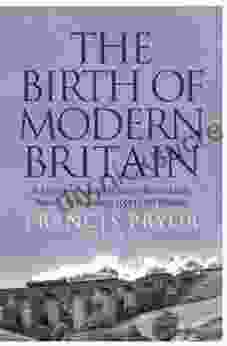
 Derrick HughesThe Birth of Modern Britain: A Comprehensive Overview of the Transformative...
Derrick HughesThe Birth of Modern Britain: A Comprehensive Overview of the Transformative... Gerald ParkerFollow ·12k
Gerald ParkerFollow ·12k Ralph EllisonFollow ·11.6k
Ralph EllisonFollow ·11.6k Forrest BlairFollow ·3.8k
Forrest BlairFollow ·3.8k Aaron BrooksFollow ·13.5k
Aaron BrooksFollow ·13.5k Ralph TurnerFollow ·14.1k
Ralph TurnerFollow ·14.1k Louis HayesFollow ·5.8k
Louis HayesFollow ·5.8k Abe MitchellFollow ·18.9k
Abe MitchellFollow ·18.9k Chris ColemanFollow ·19k
Chris ColemanFollow ·19k
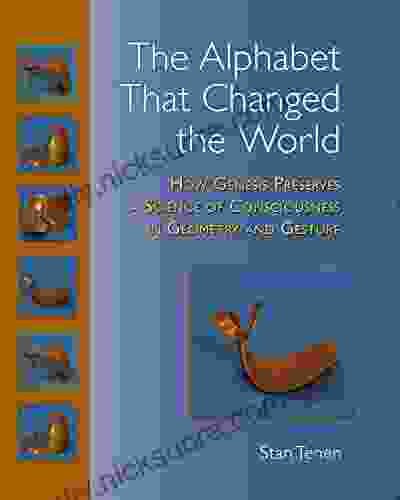
 Franklin Bell
Franklin BellHow Genesis Preserves Science Of Consciousness In...
The book of Genesis is...
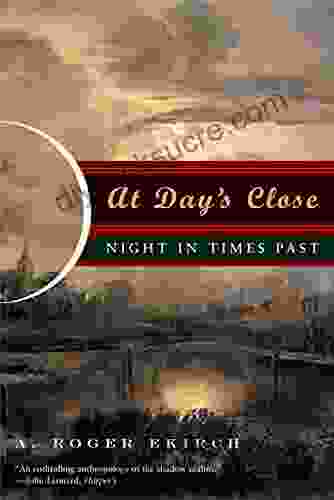
 Ted Simmons
Ted SimmonsAt Day's Close, Night in Times Past
As the sun dips...

 Kenneth Parker
Kenneth ParkerRose Under Fire: Code Name Verity - A Heartbreaking and...
In the annals of...

 Jerry Hayes
Jerry HayesNurturing Massage for Pregnancy: A Comprehensive Guide to...
Pregnancy is...

 Blake Bell
Blake BellFill in the Blank: Word Kind of Animal Farm for Kids and...
This interactive fill-in-the-blank...
4.5 out of 5
| Language | : | English |
| File size | : | 2858 KB |
| Text-to-Speech | : | Enabled |
| Print length | : | 128 pages |
| Lending | : | Enabled |


